Explore the Power of Community Involvement in LCAP











The Power of Community Involvement in LCAP: Using Your Voice to Shape the Future of Education
In the quest to improve student outcomes and promote equitable education, California's educational leaders rely on a vital tool known as the Local Control and Accountability Plan (LCAP). This dynamic three-year plan, revised annually, empowers school districts and county education offices to address the diverse needs of all students effectively and fairly.
A crucial aspect of creating a robust and equitable LCAP lies in meaningful community involvement. When parents, educators, students, and community members actively participate in the LCAP development and decision-making process, they contribute to the creation of a plan that truly reflects the aspirations and requirements of their school's community and culture.
This article explores the significance of community involvement in the LCAP, and explains why your voice matters, how the plan evolves in your district, and the strategies employed to engage your school's community effectively.
In this Article
What is the LCAP?
The Local Control and Accountability Plan (LCAP) is a comprehensive educational roadmap, charting the course for school districts and county education offices in California. Introduced in 2014 as part of California's Local Control Funding Formula (LCFF) reform, the LCAP aims to allocate resources more fairly and transparently to schools and give local educational agencies (LEAs) greater flexibility in how they spend those funds.
The LCAP serves as a guiding document that outlines the goals, actions, and budgetary allocations of an LEA to address the needs of all students effectively — and equally.
By providing a roadmap for educational goals and strategies, the LCAP aims to promote transparency, accountability, and collaboration in the educational process, ultimately leading to improved educational opportunities and outcomes for all students in California.
What happens with the LCAP in my district?
In your school district, the LCAP undergoes a collaborative development and approval process. Education leaders engage in meaningful engagement with key educational partners, including teachers, principals, administrators, parents, students, and other community members.
A Parent Advisory Committee (PAC) and an English Learner Parent Advisory Committee (ELPAC) also play instrumental roles in providing input and feedback. This participatory approach ensures that the plan reflects the diversity of voices within the community and is aligned with their aspirations and expectations.
Overall, the LCAP’s actions and budget allocations should align with the community's aspirations and address the unique needs of students, particularly those from historically underserved populations, such as foster youth, English learners, and low-income students.

Why is my involvement in the LCAP important?
As a parent, educator, student, or community member, your active involvement in the LCAP process holds immense significance. By participating in town hall meetings, focus groups, surveys, and digital conversations, you provide valuable insights that help shape the plan's strategies and resource allocation.
When educational partners unite to offer their perspectives, the resulting plan becomes more comprehensive, equitable, and representative of the community it serves.
Parents:
Advocating for your child's futureFor parents, involvement in the LCAP is a unique opportunity to advocate for your child's education. By sharing your firsthand experiences and insights, you shed light on the specific needs of students and contribute to the development of strategies that support their academic growth and overall well-being.
Your active engagement ensures that the plan addresses family concerns, enhances parent-teacher partnerships, and fosters a conducive learning environment both at home and in the classroom.
Educators and school administrators:
Influencing teaching and supportAs educators, your participation in the LCAP process helps shape instructional practices and student support services. By voicing your perspectives, you provide valuable input on professional development needs, classroom resources, and strategies to improve academic achievement.
Your involvement ensures that the LCAP reflects the realities of teaching and learning, empowering educators to make a positive impact on student outcomes.
Students:
Amplifying your voiceThe LCAP directly impacts students, making their involvement in the process vital. By actively participating in surveys, forums, and focus groups, students can voice their thoughts on learning experiences, campus climate, and support services.
Your insights and perspectives help create a student-centered LCAP, fostering an educational environment that meets your needs and aspirations.
Community members:
Enhancing the community cultureHow does the district engage your school’s community for the LCAP?
Your school district adopts various inclusive strategies to engage the community during the LCAP development process.
Using technology platforms like ThoughtExchange, they create opportunities for open and anonymous dialogue, breaking barriers to participation. By organizing town hall meetings, virtual forums, and surveys, districts ensure that all community members have a chance to contribute their thoughts and perspectives.
This multifaceted approach fosters a sense of ownership and empowerment within the community, leading to a more inclusive and impactful LCAP.
How to get involved in LCAP development
Attend LCAP meetings and forums
Regularly attending your local LCAP meetings and public forums is crucial for staying informed about the development and progress of the plan.
These gatherings provide opportunities to learn about the district's goals, actions, and budget allocations. Actively participating in discussions allows you to gain deeper insights into the decision-making process and voice concerns or suggestions.
Engaging with other community members and educational leaders fosters a sense of collective ownership over the educational system and promotes transparency and accountability in the planning process.
Join advisory committees
Becoming a part of Local Advisory Committees or Parent Advisory Committees (PACs) allows you to actively contribute to the development and implementation of the LCAP.
These committees often consist of diverse representatives who can share unique perspectives, advocate for specific priorities, and collaborate with others to shape the plan's strategies and goals. Advisory committees serve as valuable channels for ensuring that the plan addresses the needs and aspirations of the entire school community.
Participate in surveys and feedback sessions
School districts may conduct surveys or feedback sessions through a platform like ThoughtExchange. These activities are designed to gather insights from a wide range of voices, ensuring that the plan is comprehensive and inclusive.
Sharing personal experiences, concerns, and recommendations helps decision-makers understand the realities faced by students, educators, and families. Input from educational partners plays a pivotal role in shaping the plan's priorities, resource allocation, and initiatives tailored to address specific challenges.
Empowerment through engagement
As education undergoes transformation, community involvement in the LCAP is a powerful catalyst for positive change. By actively participating in the plan's development, parents, educators, students, and community members become advocates for equitable education, guiding resource allocation to where it is most needed.
Your voice matters, and your engagement ensures that the LCAP reflects the true aspirations and requirements of your school's community. Together, we shape the future of education, nurturing a generation of students who thrive and succeed in an inclusive and empowering learning environment.




